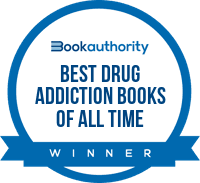Whether you're an alcoholic, a drug addict, a binge eater or a compulsive porn viewer, you may have found yourself trying to use willpower to control your habit.
You may have found that your self-control lasted for a small amount of time, only to weaken later on. Or perhaps you promised yourself one little indulgence, just to find yourself on an all-out binge.
Unfortunately, using willpower to hold off a habit, or attempting controlled use of your “fix”, are both strategies that are unlikely to work.
Humans Don't Have Much Self-Control
It takes 24 hours of self-control, all day, every day, to avoid giving in to your fix, but just a split-second decision to wreck all that hard work and end up back in the addictive cycle.
Humans only have a limited amount of willpower, and it wears out if we test it too much. This has been proven over and over again by scientific research. And this lack of self-control applies to all human beings, not just addicts. So how much harder is it if you are an addict and are dealing with cravings, withdrawal, and mental health issues as well?
An Addict's Brain Works Differently
If you have crossed the line into full-blown addiction, you will have changed your brain chemistry irreparably so that having one “hit” always leads to an overwhelming compulsion for more.
We often believe we should be able to rationalise or “think” our way out of behaving compulsively, but addiction is fuelled by primitive parts of the brain, such as the limbic system, which kick in before common sense can prevail.
Having developed an addiction, your brain now has strong neural pathways that steer you towards your addiction even when you don't actually want to indulge in your addiction any longer. Due to addicts' issues with the brain chemical dopamine, the urge to use becomes even greater once you've started either anticipating having a fix or have actually had one. And we're back into the addictive cycle again.
Learn to Deal With Life Without Fixes
Instead of trying to override our instincts and our own biological programming, we would be better served in working out how we can live without our “fixes”, since it is unlikely we will ever be able to moderate our use of them.
In my book, The Recovery Formula, I show that a large part of recovery from addiction is about changing our responses to life so that we don't relapse. If you never felt the need to use your “fix” again, you wouldn't have to go through life living on frayed nerves and borrowed time.
You should look into ways you can change the way you think, so you are better able to deal with stress and problems without needing to escape into a damaging behaviour or substance. For example, Dialectical Behaviour Therapy is a very effective tool I use with my clients to help them deal with life's challenges better.
Additionally, if you have experienced trauma or have underlying issues, such as low self-esteem (which most addicts have), you will need to address those at some point, or your recovery is likely to hit the rocks.
by Beth Burgess, Therapist and author of The Recovery Formula, The Happy Addict, and What Is Self-Esteem?




